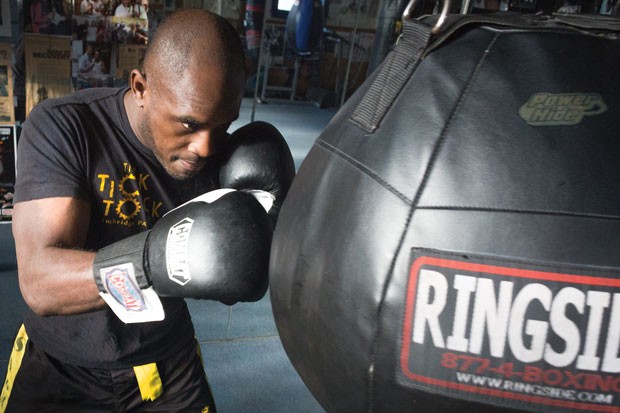My friend Susan introduced me to an interview with Ed Latimore on the Farnam Street’s Knowledge podcast. I finished listening to it while biking down 31st street in Astoria. I got off my bike, started the podcast over, and immediately listened to it again.
Ed Latimore is a professional boxer with a 13-1-1 record, a chess player, author, and self-improvement blogger. His two books are The Four Confidences and Not Caring About What Other People Think is a Superpower.
He dropped a lot of knowledge in this hour-long interview, but four of his principles really stuck with me, and I think they can apply to your life, too.
You never remember how you survived difficult times, but you did
I don’t remember how I got through my sophomore year at college. I worked four jobs and carried a full class load. One job was an internship with a magazine that required a 1-hour commute into Manhattan. Another, I worked overnight from 12:30am to 8:30am every Wednesday before my 9:50 class on Thursday morning. So for a semester, I didn’t sleep on Wednesdays. I’ll never do this again. I don’t know how I did it then — but I did.
When I moved to Los Angeles in 2010, my entire life was the entertainment industry. I read scripts and wrote. That’s it. My diet consisted of spaghetti and peanut butter sandwiches. I didn’t go out. Didn’t exercise. I don’t know how I got through those first years in LA, other than the commitment to do whatever it takes to make it in Hollywood.
You have these experiences, too. We all do. You can’t keep it up forever, and you shouldn’t have to. But you are more powerful and capable than you believe.
If a thing is important to your success then it doesn’t matter how you feel about it. It just needs to be done
Recently, for the first time in my life, I stopped getting up early.
I was sleeping until 8 or 9am on weekdays. When the alarm went off in the morning, I found all sorts of ways to justify hitting snooze: I needed to “catch up” on sleep. With more sleep, I’d be “more productive” during the day.
Technically, I wasn’t wrong. Rest is good. You should sleep 8 hours. But sleeping until 9am didn’t map to what I wanted to achieve during the day. If my day started at 9am, I couldn’t get my work done, write, train, and be a good partner. There weren’t enough hours.
After hearing Ed Latimore’s thoughts on this, I killed my snooze button and started waking up early again.
Every decision starts with feelings. This is the basis for persuasion and influence: We lead with emotion and justify with logic. But feelings always default to easy. That’s why accomplishing anything, whether it’s losing 10 pounds or starting a business, requires building habits and systems. Habits and systems will protect you from your own feelings.
You’re never going to enjoy running. Run anyway, and enjoy the results.
My sister used to make me watch A League of Our Own every day. I’ve seen the movie at least 75 times. There’s a scene near the end where Geena Davis’s character quits baseball. “It got too hard,” she says before hopping in her car.
Tom Hanks’s character replies, “It’s supposed to be hard. If it wasn’t hard, everyone would do it. The hard is what makes it great.”
Hard work by definition is not enjoyable. Yet you do it anyway, because results, success, and greatness is on the other side of hard work. It’s great if you enjoy the work — but enjoying work is never the goal. The goal is getting results and achieving something.
You’re going to suffer if you work hard or do nothing. So you might as well suffer pursuing something great.
Youtube binge watching is one of my worst habits. It’s why I have to use Internet blockers on my computer and phone. When I’m bored or stuck at work, Youtube gives me a break from the pain in the form of scenes from random movies and TV shows: The Godfather, Naruto, How I Met Your Mother, etc.
The problem is after the dopamine hit, I feel worse afterwards. I feel terrible for wasting the time, not getting anything done. So whether you work hard or waste time, you’re going to suffer. Might as well suffer while making yourself better.
The same is true for working out. If you don’t workout, you’ll suffer. You’ll gain weight, your knees will start to hurt, you’ll feel depressed. If you do workout, you’re going to suffer. Your lungs will burn, you’ll build lactic acid in your muscles, you’ll feel sore. Either way, you’re going to suffer. But only that one type of suffering leads to a strong, healthy body you’re proud of. So you might as well pick that one.
It was an amazing interview. Check out Not Caring What Other People Think Is a Super Power: Insights From A Heavyweight Boxer here (not an affiliate link) and check out the Farnam Street Podcast here.

Comments are closed.